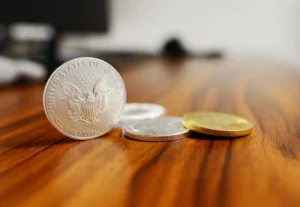In daily language, “fair game” can be used to suggest that something or someone can be an object of criticism (perhaps because of their behavior or nature). But, what about the meaning of fair game in an economic or financial context?
In such a context, a fair game can be defined as a game in which a player would accumulate neither a profit nor a loss if the game is played repeatedly over time. For example, a two-player game would be fair if we didn’t expect either player’s wealth to change after playing the game many times.
It is worth noting that there is a clear link between an individual’s risk appetite and their willingness to accept a fair game. In particular, a risk-averse individual (i.e., someone who dislikes risk) would refuse to play a fair game as it involves risk but does not entail a risk premium.
In what follows, we use the coin toss game to illustrate how a fair game works and provide a mathematical illustration as well. You can also find a video summary at the end.
Contents
Coin toss game

Imagine that you have got a fair coin in hand such that the coin has a 50-50 chance of landing on heads or tails. The coin toss game is as follows: If the coin lands on heads, player A pays player B a certain amount, say $10. And, if the coin lands on tails, this time player B pays player A the same amount ($10).
This is a fair game because if the game is played many times over, neither player A’s nor player B’s wealth is expected to change. We can show this mathematically as follows:
Let’s say player A’s wealth before the game is Wb and their expected wealth after playing the game once is E[Wa]. If player A wins, their wealth increases to Wb + $10. If they lose, it decreases to Wb − $10. These events have equal probability as there is a 50% chance of the coin landing on heads and a 50% chance on tails. Then, player A’s expected wealth after one round of play is:
E[Wa] = 50% (Wb + $10) + 50% (Wb − $10)
This simplifies into:
E[Wa] = Wb
That is, player A’s expected wealth after playing the coin toss game is the same as their wealth before the game. Thus, this game is fair as player A neither wins nor loses in expectation.
Video summary
Summary
In an economic sense, a fair game is such that the odds of winning are fair for each player, and no player would accumulate wealth at the expense of others by playing this game.
Note that this is not the case in gambling where the house has an edge (ever heard of the phrase “the house always wins?”) or in sports betting where bookmakers maintain a margin by posting odds that are slightly in their favor.
Further reading:
Graham and Stott (2008), ‘Predicting bookmaker odds and efficiency for UK football‘, Applied Economics, Vol. 40 pp. 99-109.
What is next?
This lesson is part of our free course on investments.
- Next lesson: We introduce different risk attitudes, drawing a comparison between risk-averse vs risk-seeking behavior.
- Previous lesson: We explain what risk appetite means and how it is related to risk tolerance and risk capacity.
If you would like to get in touch with us, you can do so through our contact form. And, if you like our content, please spread the word by sharing our posts with your friends and colleagues.

